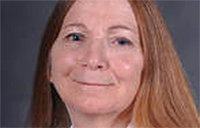Big data is big news.
In the past few years there has been a surge in news articles, degree programs and career opportunities all centred around analytics. One of the newest areas of analytics uses semantic technologies to determine the meaning behind large volumes of text information, basically “text analytics”.

Just imagine the implication of being able to determine the meaning behind the written word. What was that performance review really saying or how are people’s feelings and perceptions about an issue influenced by the messages in the media? Semantic technologies add the human element into analysis and can produce insights and understanding that would not have been available otherwise.
Want to know more?
Denise Bedford, Goodyear Professor of Knowledge Management at Kent State University, will present Analytics 2.0 – Embedding Human Intelligence in Semantic Technologies, Thursday, Feb. 5 at SAS Canada, 280 King St. E., 5th floor, Toronto. A networking reception will start at 5pm and the talk from 5:30 to 6:30pm. The event is co-hosted by York’s Schulich School of Business Master of Business Analytics program and SAS Canada.
Using cases studies from WikiLeaks and the 2012 presidential election, Bedford will illustrate how semantic technologies can produce insights and understanding not otherwise available. How human intelligence can be embedded into these technologies and the risks and implications for business decision making will also be discussed.
Analytics are critical to making good business decisions. Business analysts, decision makers and managers have always used this information to make smart decisions. What makes the use of semantic technologies better than traditional analytical technologies is the ability to embed human intelligence into the models.
Bedford knows a thing or two about analytics. She retired from the World Bank in 2010 where her responsibilities included the development and operationalization of the bank’s semantic analysis technologies, enterprise search and content management architectures. Prior to the World Bank, she worked at Intel, NASA, University of California, and Stanford University.
Due to room restrictions, registration is required to attend. There are only 50 spots available so register today.
For more information, contact 416-736-5060 or events@schulich.yorku.ca.


